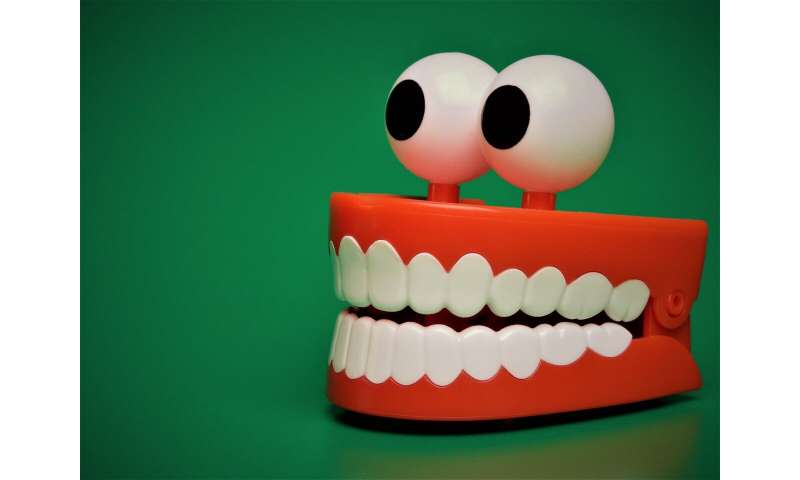Kiwi preschoolers losing teeth to painful, preventable tooth decay


Kiwi kids are suffering unnecessarily from severe tooth decay that could be prevented, according to research published today in JAMA Pediatrics, the highest-ranking journal of pediatrics, perinatology and child health in the world.
The nation-wide study, evaluating the link between community water fluoridation and the experience of severe tooth decay in four-year-old New Zealand children, analyzed the B4 School Check screening program data of 275,000 children over a five-year period from 2011 to 2016.
The findings show children who didn’t have a fluoridated water supply were 20% more likely to have severe tooth decay.
“Modern dentistry can only do so much to tackle this issue and by the time children receive dental care it’s often too late to save their baby teeth, which then affects the development of adult teeth,” says Dr. Martin Lee, Canterbury’s Community Dental Service Clinical Director. “Community water fluoridation is the safest and most cost-effective preventative strategy we have to protect the teeth of all Kiwi kids, and the teeth of all New Zealanders generally.”
Nearly one in seven (15%) of four-year-olds who had had a B4 School Check were found to be severely affected by tooth decay. While the rates of severe decay were much higher for Māori and Pacific children and children living in deprived areas, no-one was immune—7% of NZ/European children and children living in the least deprived areas had severe tooth decay.
Four-year-olds with severe decay frequently need a general anesthetic for their dental treatment and many of those on hospital waiting lists have chronic toothache and abscesses.
New Zealand has a long-term national policy supporting community water fluoridation, yet only 54% of the population currently receives it. A Bill proposing moving responsibility for this from Councils to District Health Boards, introduced in 2016, has not been progressed since a health select committee report in 2017.
Lead author of the study, Philip Schluter, Professor of Population Health at the University of Canterbury (UC), says the burden on the dental health of Kiwi kids is not shared equally across the country.
“The research shows the current lack of widespread community water fluoridation disproportionately affects children living in the most deprived areas, with Māori and Pacific children more likely to experience worse oral health than pakeha, even after accounting for key sociodemographic factors,” says Professor Schluter.
“We hope that the real-world evidence provided in this research will be used in evidence-based policy-making to combat the woeful oral health burdens and neglect carried unnecessarily by so many children in New Zealand.”
Key points/findings
- Study of 275,000 Kiwi children over a five-year period (2011–2016) found:
- Children in areas without a fluoridated water supply were 20% more likely to have severe tooth decay
- Māori and Pacific children living in the most deprived areas were eight and 12 times (respectively) to have severe tooth decay
- 7% of NZ/European children and children living in the least deprived areas had severe tooth decay
- Nearly one in seven (15%) of four-year-olds who had had a B4 School Check were found to be severely affected by tooth decay
- New Zealand has a long-term national policy supporting community water fluoridation, yet only 54% of the population receives it
- A Bill proposing moving responsibility for community water fluoridation from Councils to District Health Boards, introduced in 2016, has not been progressed since a health select committee report in 2017
Source: Read Full Article